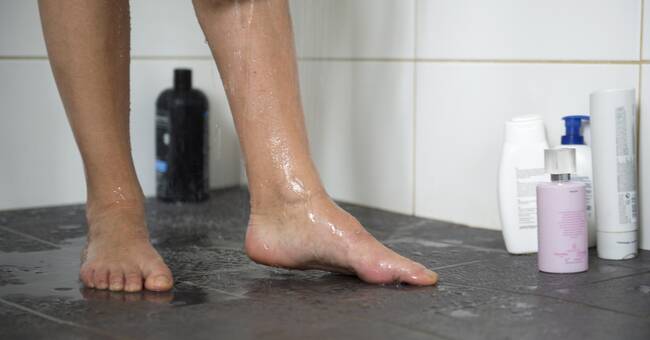In September 2019, a hidden camera in a private home received a lot of media attention.
A craftsman in Skåne had installed the camera inside the bathroom to secretly film the family.
A few months earlier, a man tried to film in a public shower room by a sea bath.
He had hidden the camera inside a shampoo bottle.
Last March, another man was convicted in Linköping after he secretly filmed his wife's friends when they went to the toilet.
All three cases were tried under the relatively new law on offensive photography.
In Sweden, it has been a criminal offense since 2013 to secretly film or secretly photograph a person without consent.
This applies in a home, in toilets, in changing rooms or in other similar spaces.
"Often in toilets"
Brå examined the law in 2019, and according to investigators Anna Galvanas and Katharina Tollin, it is mainly three groups that secretly film: young people who want to impress friends, ex-partners and refugees.
- Refugees are people who hide cameras, often in toilets and changing rooms, to take pictures of people they would not otherwise be allowed to see undressed, Tollin says.
All three groups are about the same size.
However, the fugitives differ in a few different ways:
- They are often also suspected of child pornography crimes or sexual abuse of children.
It's a larger group than you think.
Had spy camera
But the law is not always enough.
When a school doctor was prosecuted in Falun in 2016 for secretly filming boys' genitals with a spy pen, the court made the assessment that it was not offensive photography.
The sneaky filming had taken place in a doctor's surgery, and it was not included under "other similar spaces".
Even though the doctor was convicted of gross exploitation of children, it highlights a problem in the legislation, says Katharina Tollin.
- The idea was that "other similar space" would give the court the opportunity to also include other places where you can be expected to be protected, but this is not how practice has developed, she says.
An investigation is currently underway on behalf of the Minister of Justice.
The hope is to be able to fix the gap and improve protection against sexual abuse.
The assignment must be reported no later than March 2021.

